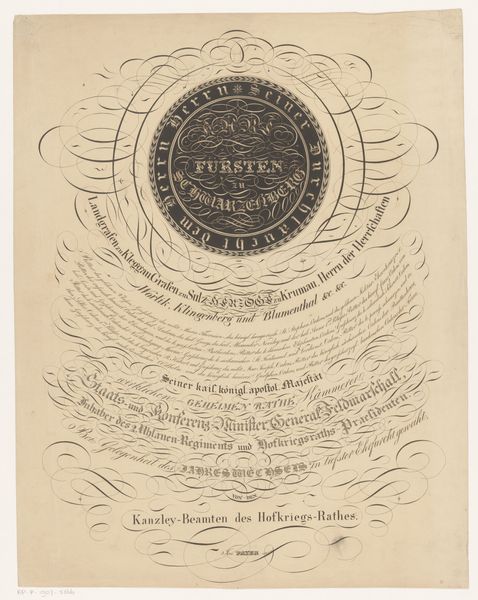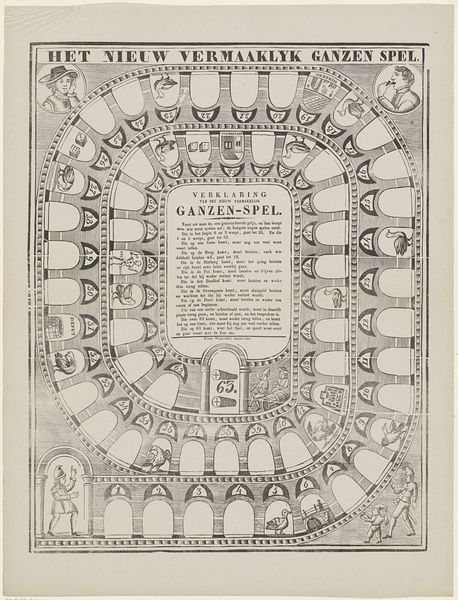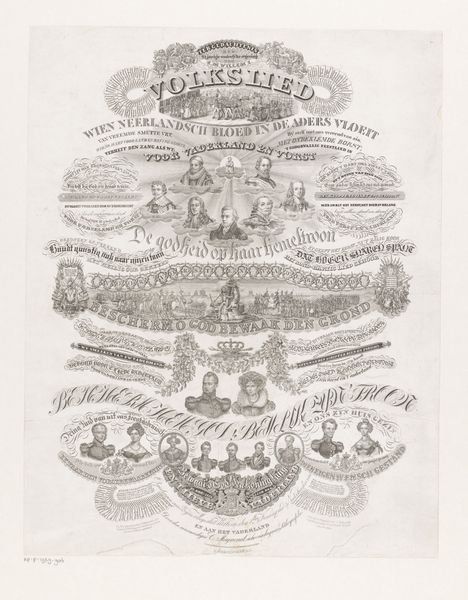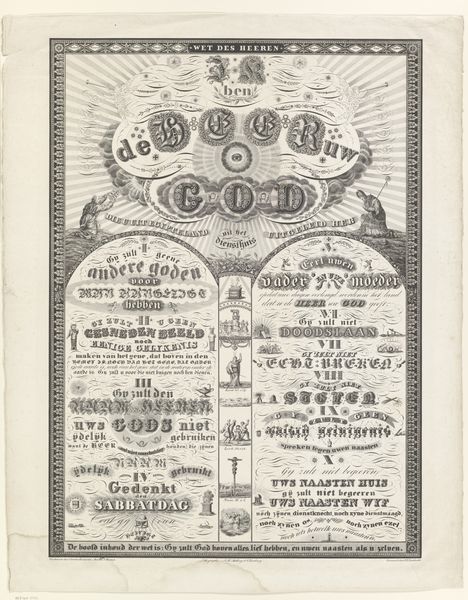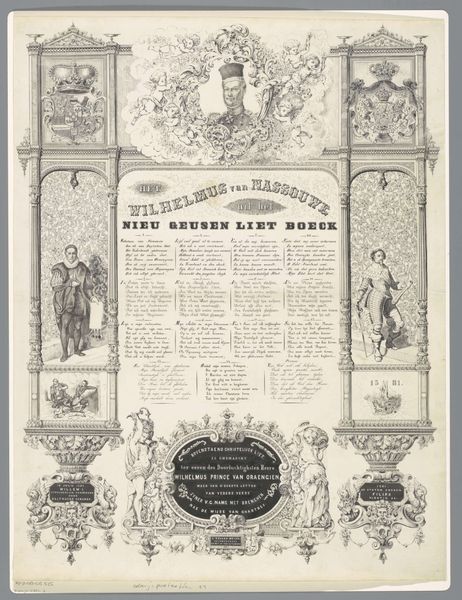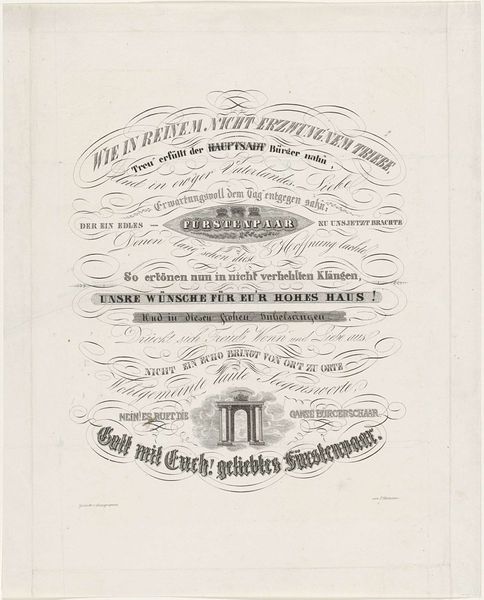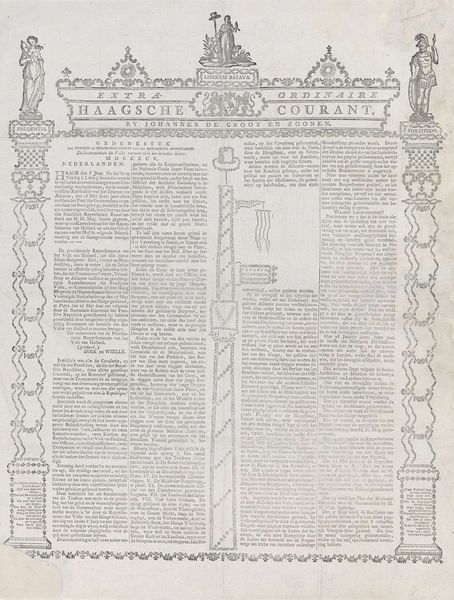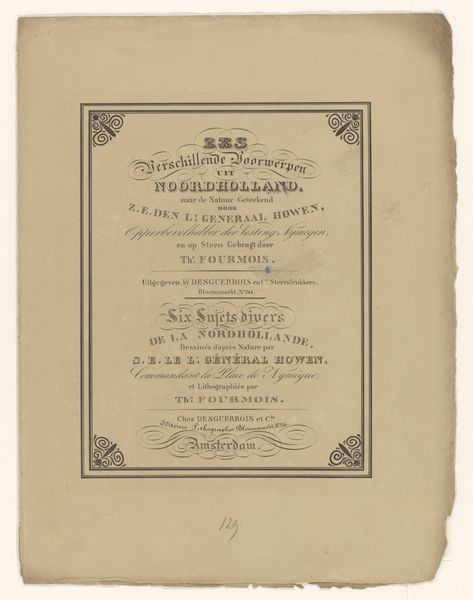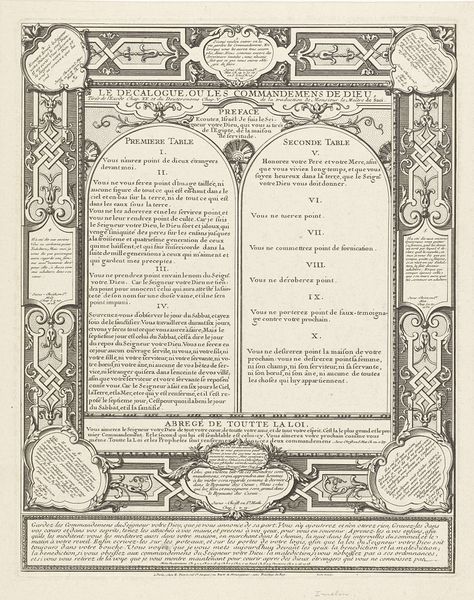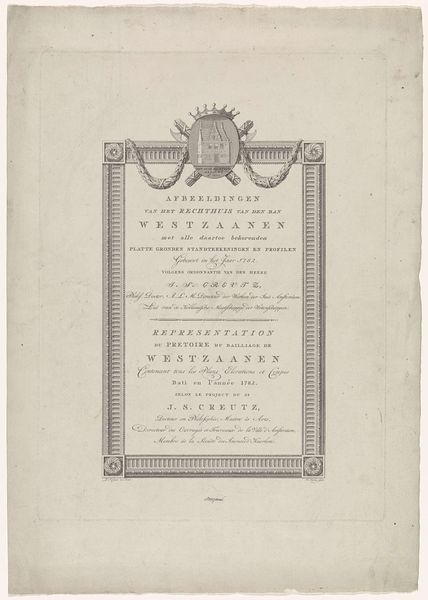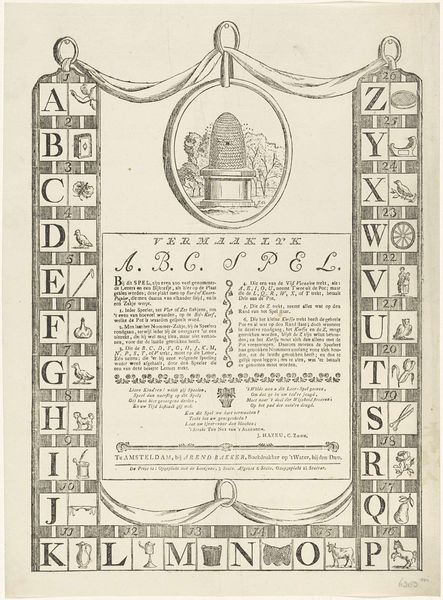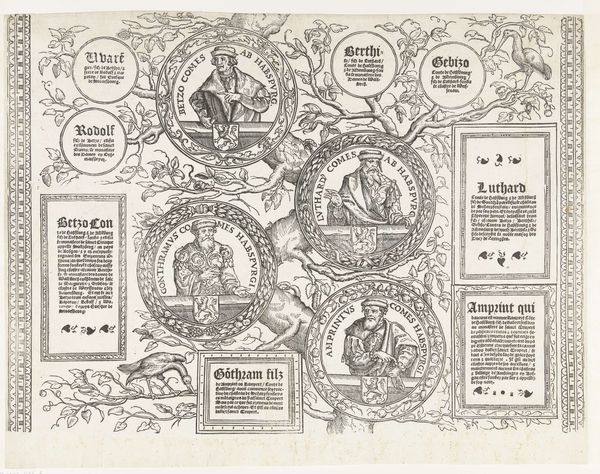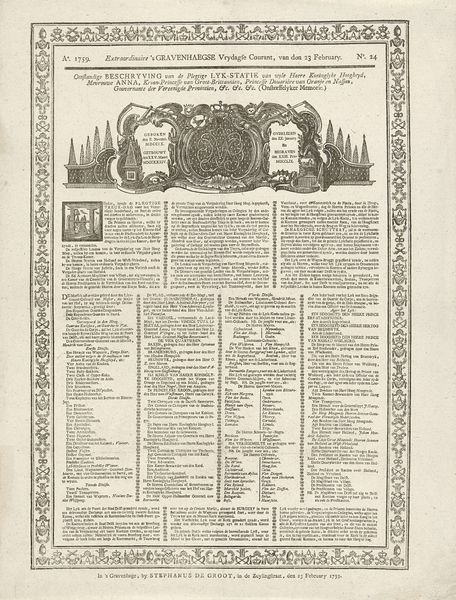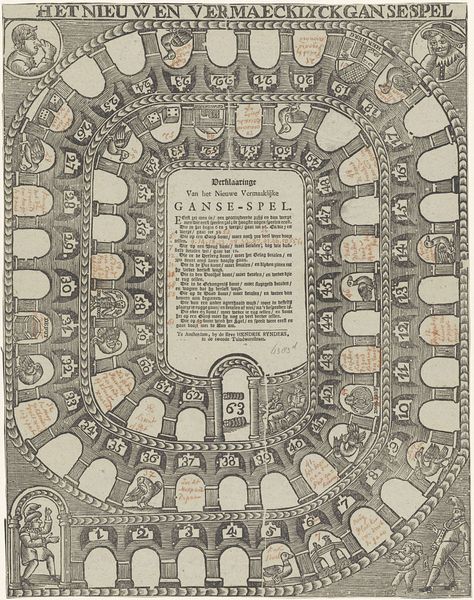
Verklaring bij de prent met de kalligrafie van het lied 'Wien Neêrlands Bloed' bij het vijfentwintigjarige regeringsjubileum van koning Willem I, 1838 1838
0:00
0:00
willemcharlesmagnenat
Rijksmuseum
graphic-art, print, textile, typography, engraving
#
graphic-art
# print
#
textile
#
typography
#
romanticism
#
engraving
#
calligraphy
Dimensions: height 440 mm, width 343 mm
Copyright: Rijks Museum: Open Domain
This illustrated sheet, created by Willem Charles Magnenat in 1838, commemorates the twenty-fifth anniversary of King Willem I's reign through the calligraphic depiction of the patriotic song "Wien Neêrlands Bloed." The most striking symbol here is the emphasis on the text itself. Words curve and swell, almost forming a protective embrace around the names of the Dutch monarchs. This recalls the ancient practice of sacred writing where text was not just read but revered. Consider the Torah scrolls, where the handwritten word embodies divine presence. The act of writing, especially calligraphy, has long been associated with power and preservation, echoing through medieval illuminated manuscripts and even ancient Egyptian hieroglyphs. Handwriting possesses an aura of authenticity, like a unique fingerprint that carries the emotional weight of its creator, engaging viewers on a subconscious level. It's a powerful visual expression that continues to resurface and evolve, constantly shaped by cultural memory and emotional experience.
Comments
No comments
Be the first to comment and join the conversation on the ultimate creative platform.
